I’d urge anyone interested in the American Civil War to check out Civil War Daily Gazette. Eric has recently celebrated the site’s one year anniversary. His site does a great job following the war day-by-day on all fronts and in government. 150 years ago today a combined Union army – navy force defeated the Confederates at Port Royal and took over two forts guarding the approach to Beaufort, South Carolina. Samuel Francis Du Pont led the Union navy. The Union army was commanded by Thomas W. Sherman.
Here’s how one Union participant wrote about the expedition. From a Seneca County newspaper in 1861:
From South Carolina
The following letter is from a brother of one of the editors of this paper, who enlisted in one of the Michigan Regiments, which accompanied the Great Naval Expedition to Port Royal, S.C.:
HILTON HEAD, S.C. November 18, 1861.
We left Annapolis on the 19th of October and remained at Hampton Roads about two weeks, before setting sail for this place. On our way here we encountered a terrible storm which wrecked two of the vessels attached to the Expedition. The Winfield Scott was so badly disabled that she had to cut away her masts, and while doing so two of her men were carried overboard, and lost. We were on the Vanderbilt which proudly rode the waves, the only damage being to the soldiers stomachs.
It was with a great deal of difficulty that we approached the harbor at Port Royal, in consequence of the Southerners having removed all the buoys. Our small boats were compelled to explore in every direction to find the channel, so that our War vessels could run up somewhere near the Forts. After no little delay every thing was got in readiness and on the morning of the 7th of November our boats opened fire on the Rebel steamers, driving them to their hole, in a very short space of time. – No sooner was this accomplished than a terrific cannonading was commenced against the Rebel Forts, there being two of them, one on each point, and after about three hours we succeeded in silencing their guns, and causing the chivalry of South Carolina to flee in a most unceremonius manner. – Our forces landed immediately and took possession of their Forts, and other works, over which the glorious old flag was soon thrust to the breeze. The Rebels left behind some twenty-five or thirty pieces of cannon, and among the number was five or six rifled guns of the most improved pattern. Our loss was eight killed and probably as many more wounded. The enemy’s loss was very great, and in their precipitate flight they left behind, their tents, guns, ammunition, wagons horses, &c &c. Upon our asking an old nego whether the Rebels run or not he replied, “Lor’ of God, massa run was no name for it”!
It is as warm as Summer here and we live off the fat of the land. We have sweet potatoes in great abundance, and all the other luxuries of this most beautiful country. – We are now very busy throwing up breast works, in order that we may give the enemy trouble should he see fit to attack us, of which there is some danger. S.S.
Apparently the same storm that damaged the Winfield Scott was buffeting the North as the ship’s retired namesake traveled to New York City by train after departing Washington, D.C. and his 53 year army career.

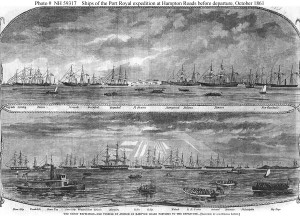
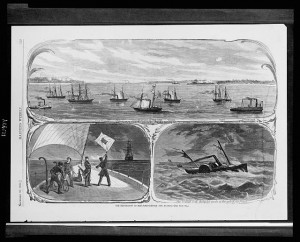
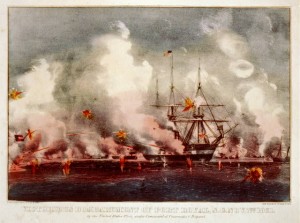
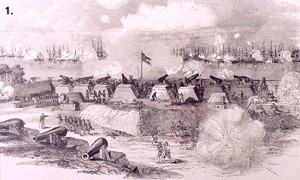
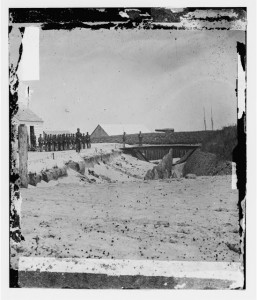
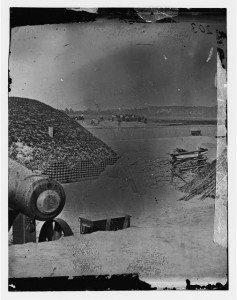
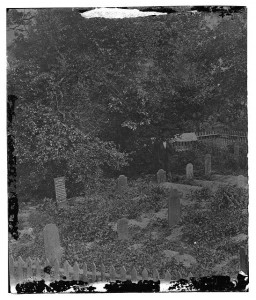
Pingback: Southern Patriotism: King Cotton on the Pyre | Blue Gray Review
Pingback: Slaves’ “cat-like clinging” to Their Quarters | Blue Gray Review
Pingback: Contraband Needs in South Carolina | Blue Gray Review